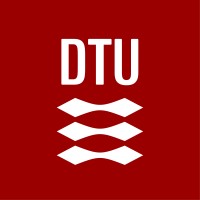Postdoc in Geodesy and Solid Earth Deformation - DTU Space
DTU - Technical University of Denmark.com
Office
Kgs. Lyngby, Denmark
Full Time
The postdoc will focus on gaining new insight into how we can use solid earth deformation from permanent GNSS stations in Greenland to learn more about climate change. The research will be at the absolute forefront of combining GNSS and modeling the different contributions that courses solid Earth deformation where the main contributors are elastic deformation, glacial isostatic adjustment and plate tectonics. The analysis will encompass both network wide and local analysis using data from Greenland GNSS Network (GNET). You will target specific regions where there can be an unresolved GNSS signal, or large glaciers that are important to Greenland’s mass balance, to gain new knowledge of glacier, ice sheet dynamics and the coupling with solid Earth deformation. The postdoc will delve into advanced time series analysis to decipher the seasonal signal and noise profiles of the GNSS time series.
- Responsibilities and qualifications
- Your primary tasks will be to perform original research that aims at improving our understanding of 3D surface displacements of the solid earth due to past and present-day ice variability.
Your Tasks Will Include:
- Creation of altimetry and/or Digital Elevation Models
- Model elastic displacements due to present-day ice loss.
- Model glacial isostatic adjustment in Greenland
- Analyze time series from permanent GNSS stations located in Greenland.
- Analyze 3D surface displacements of the solid earth due to present-day ice loss.
- Publish the new findings in the international peer-reviewed literature
- Present your research at international conferences and participate in relevant project meetings
- Potentially participate in Arctic field campaigns
- Be working with large data sets and developing algorithms.
You should be highly motivated, self-driven, and possess strong work ethics, team spirit, and excellent collaboration skills. You will be responsible for the collection, processing, modeling, and interpretation of geophysical and satellite data. You will be expected to communicate effectively with colleagues and work collaboratively to achieve ambitious goals. Additionally, you will contribute to research-based teaching and the supervision of student projects.
Your Qualifications Should Include:
- Skills in mathematical modelling and machine learning of relevant physical glacier processes (ice sheet and mountain glaciers), with proficiency in MATLAB/Python/Fortran, and related software tools
- Experience with satellite remote sensing, including both optical and radar techniques
- Experience in conducting field campaigns
- Expertise in data processing and inverse modeling techniques
- The ability to publish at the highest level in the international peer-reviewed research literature
As a formal qualification, you must hold a PhD degree (or equivalent).
We offer
DTU is a leading technical university globally recognized for the excellence of its research, education, innovation and scientific advice. We offer a rewarding and challenging job in an international environment. We strive for academic excellence in an environment characterized by collegial respect and academic freedom tempered by responsibility.
- Salary and terms of employment
- The appointment will be based on the collective agreement with the Danish Confederation of Professional Associations. The allowance will be agreed upon with the relevant union.
- The period of employment is 3 years.
- You can read more about career paths at DTU here.
- Further information Further information may be obtained from Professor Shfaqat Abbas Khan (abbas@space.dtu.dk).
- You can read more about “geodesy and earth observations” at https://www.space.dtu.dk/english/research-divisions/geodesy-and-earth-observation
If you are applying from abroad, you may find useful information on working in Denmark and at DTU at DTU – Moving to Denmark.
- Application procedure
- Your complete online application must be submitted no later than 30 September 2025 (23:59 Danish time).
Applications must be submitted as one PDF file containing all materials to be given consideration. To apply, please open the link "Apply now", fill out the online application form, and attach all your materials in English in one PDF file. The file must include:
- Application (cover letter)
- CV
- Academic Diplomas (MSc/PhD – in English)
- List of publications
Applications received after the deadline will not be considered.
All interested candidates irrespective of age, gender, disability, race, religion or ethnic background are encouraged to apply. As DTU works with research in critical technology, which is subject to special rules for security and export control, open-source background checks may be conducted on qualified candidates for the position.
The Geodesy and Earth Observation division at DTU Space invites applications from skilled and experienced researchers to work on Greenland Ice Sheet changes. The role focuses on developing advanced methods to enhance the understanding of the Greenland Ice Sheet, peripheral glaciers, and their contribution to sea level rise using finite element models such as the Ice-sheet and Sea-level System Model (ISSM), field observations, and various remote sensing products.
The division of Geodesy and Earth Observation at DTU Space is renowned for its outstanding work on the Physical modeling of the solid Earth, ice sheets, sea level and GNET data to understand the development ice-solid earth interaction with the aim to develop dynamic reference frames and integrated models which pushes the boundaries of both fundamental research and practical applications.
Technology for people
DTU develops technology for people. With our international elite research and study programmes, we are helping to create a better world and to solve the global challenges formulated in the UN’s 17 Sustainable Development Goals. Hans Christian Ørsted founded DTU in 1829 with a clear mission to develop and create value using science and engineering to benefit society. That mission lives on today. DTU has 13,500 students and 6,000 employees. We work in an international atmosphere and have an inclusive, evolving, and informal working environment. DTU has campuses in all parts of Denmark and in Greenland, and we collaborate with the best universities around the world.
Postdoc in Geodesy and Solid Earth Deformation - DTU Space
Office
Kgs. Lyngby, Denmark
Full Time
September 16, 2025

DTU - Technical University of Denmark
dtutweet